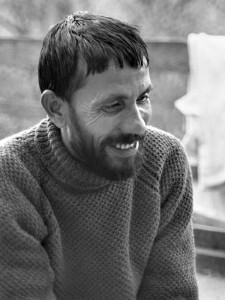In 2014, he was honoured with Gandhi Peace Prize by President Pranab Mukherjee. A Gandhian and environmentalist initiated the Chipko Movement in March 1973.
In the history of Uttarakhand, Chipko Movement is an inevitable part. In March 1973, a protest transformed into a movement and astonished the whole nation with the unity and non-violent way of protest to save our environment. But many of us really know the mind behind this movement.

Photo by Mark Shepard
Bhatt was born on 23 June 1934 in the family of Brahmins in Gopeshwar (Chamoli district), Uttarakhand, founded the Dashauli Swarajya Seva Sangh in 1964 with his few friends, which has justly been called the “mother organisation of the Chipko movement”. A courageous man, Chandi Prasad Bhatt who initiated a movement which course lay a decade in the future. The foundation stone of the DGSS was laid by a woman— Sucheta Kripalani, who was then Chief Minister of Uttar Pradesh while the land was donated by another woman, Shyama Devi. In the early 1980s, the DGSS re-named as the DGSM, with “Mandal” replacing “Sangh”.
A Gandhian who was the member of the Sarvodaya movement and organised the Dashauli Gram Swarajya Sangh in 1964. Through his non-violent satyagraha, he fought against the wrong policies of the government and dedicated himself to improve the lives of villagers, providing employment near their homes in forest-based industries.
While honouring him with Gandhi Peace Prize, President Pranab Mukherjee said: “It is a love of nature and nature as encompassing entire creation. The Chipko movement started by him in 1973 followed the same method of peaceful and non-violent Satyagraha for the redressal of the legitimate rights of the hill people to collect wood and fodder and saving them from natural calamities owing to large-scale deforestation.”
His remarkable work in the field of the environment has remained less known and honoured than is his due. But if you go Garhwal to know about his work then you will get to know range of issues he has been working on and talking about. In his words: “A variety of issues being discussed all over the world today — the advancement of women and Dalit groups and their participation in decision-making, ecology, environment, traditional rights of people, the indigenous knowledge of people, basing development processes on successful experiences and self-reliant economies— have first been worked on by DGSM 30-odd years ago; and without any fanfare”.
In his fully devoted life to the environment, he gets a little time for writing but when he pen down his thoughts, they convey both understanding and wisdom. In 1992, he wrote a critique of large dams for the journal ‘Pahar’ which was later published in English under the title “The Future of Large Projects in the Himalaya” (Nainital, 1992). He has also written on forest conservation, ‘urging a creative synthesis between the “practical knowledge” of peasants and the “latest scientific knowledge” of the State.’
For his tremendous work in the field of environment, he has been awarded Ramon Magsaysay Award for Community Leadership in 1982, Padma Shri in 1986, Padma Bhushan in 2005 and Gandhi Peace Prize in 2014 by the President Pranab Mukherjee. Gandhi Peace Prize has earlier been awarded to President Julius Nyerere, President Nelson Mandela, Vaclav Havel, Archbishop Desmond Tutu and Baba Amte among many others.